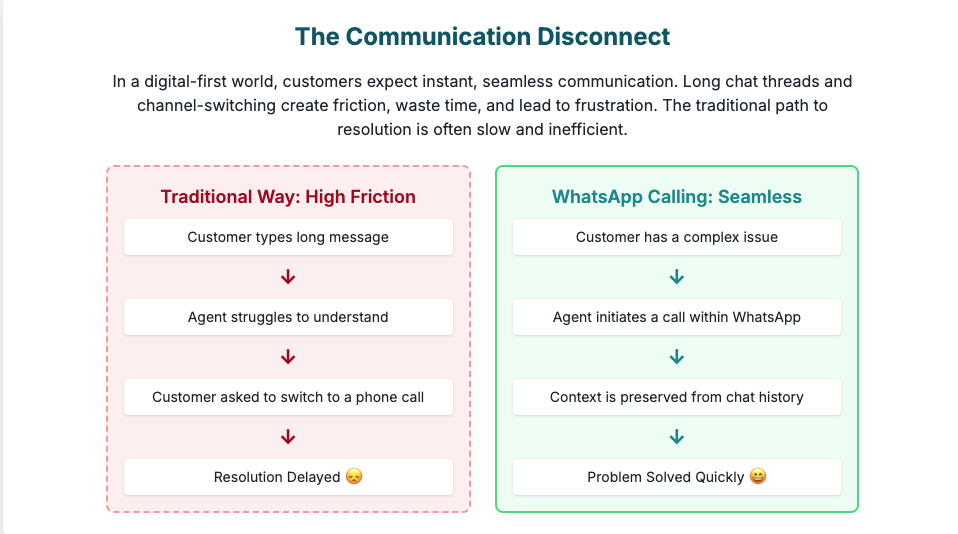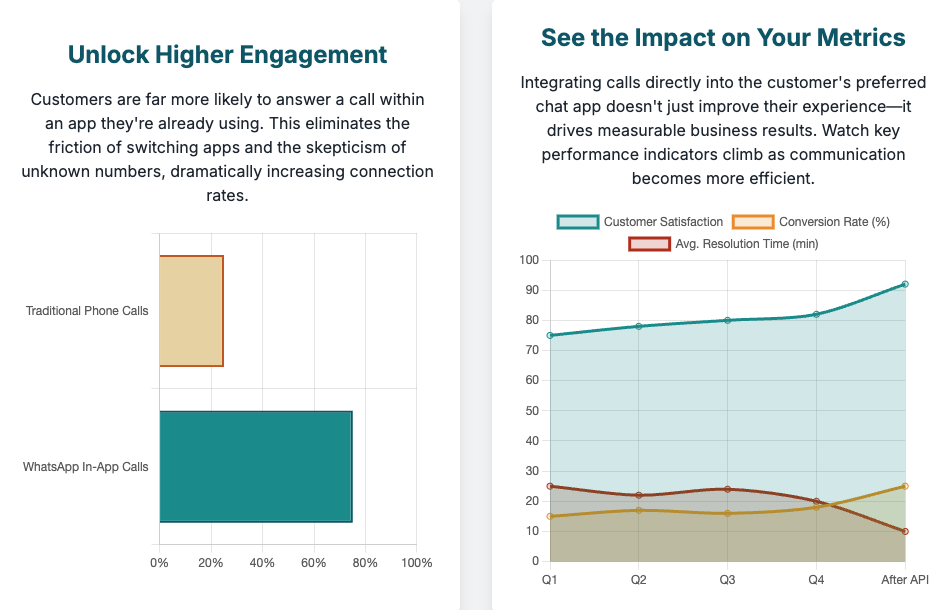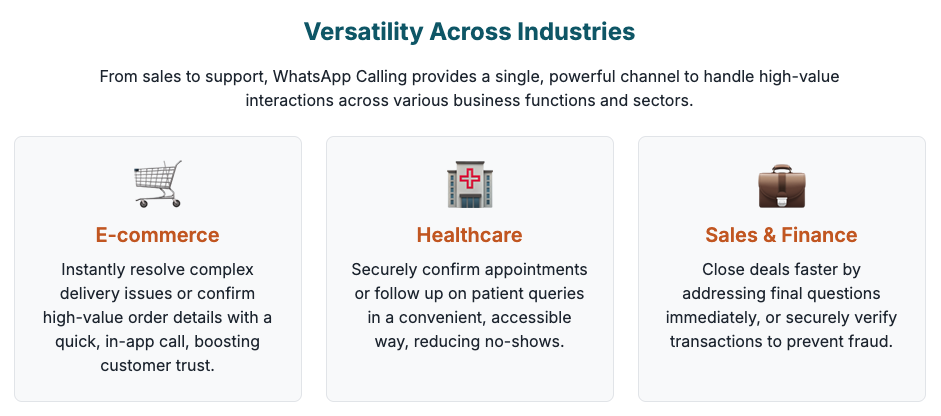Have you ever been stuck in a never-ending chat thread with a support agent, trying to explain a complex problem with text alone? The back-and-forth can be frustrating, slow, and often leads to a simple question: “Can we talk on the phone?” But that means leaving the app, finding a phone number, and starting the entire process over.
That’s where the WhatsApp Business Calling API comes in. It’s a game-changer that combines the best of both worlds, transforming a fragmented conversation into a single, seamless experience. By integrating voice calls directly into your WhatsApp chats, you can move from frustration to resolution in record time.

From Endless Chat to Instant Resolution
Think about the old way. A customer sends a message, an agent responds, and minutes or even hours pass between each reply. Complex issues are difficult to describe, and without immediate context, agents are often missing crucial information. The result is a slow, inefficient process that wastes everyone’s time and leaves customers feeling unheard.
The new way is fundamentally different. When an agent determines a call is the best path to a swift resolution, they can initiate it directly from the chat. The customer answers right there in the same app they were just using. The agent has the full chat history instantly available, so there’s no need to repeat information. This provides clarity, speeds up the process, and leads to happier, more satisfied customers.

Driving Measurable Business Impact
This isn’t just about a better experience; it’s about a better bottom line. Integrating in-app calls directly impacts your key performance indicators (KPIs). For starters, customers are far more likely to answer a call when it comes from a trusted, familiar chat they are already engaged in. This leads to significantly higher call pickup rates compared to traditional phone calls from unknown numbers.
Beyond that, you’ll see a measurable boost in core metrics. Companies are reporting an increase in conversion rates, as agents can address final questions and close deals more effectively with a personal touch. You’ll also see a dramatic reduction in average resolution time, which means your team can handle more issues more efficiently.
Interactive Use Cases in the Real World
The power of in-app calling can be applied to almost any industry.
- E-commerce: A customer has a complex delivery issue. Instead of a long text thread, an agent can initiate a call, review the order history from the chat, and confirm a resolution instantly. This builds trust and loyalty.
- Sales: An agent is close to closing a deal, but the customer has one final hesitation. An immediate, personal call can address their concerns, build rapport, and significantly shorten the sales cycle.
- Healthcare: A doctor needs to confirm an appointment with a patient or provide pre-visit instructions. A secure, trusted in-app call ensures the information is communicated clearly and reduces no-shows.

The process is designed to be effortless for both the customer and your support team.
- Chat Initiated: A customer begins a conversation on WhatsApp for support or sales.
- Call Needed: The agent recognizes the complexity of the issue and determines that a call is the most efficient solution.
- In-App Call: The agent starts a voice call directly within the WhatsApp chat. The customer receives the call in the same app and answers it there.
- Problem Solved: With the full chat context at their fingertips, the agent resolves the issue quickly and moves on to the next one.
The future of customer support is unified, efficient, and conversational. By bringing calls into your WhatsApp Business chats, you’re not just adding a feature; you’re upgrading your entire customer journey.


